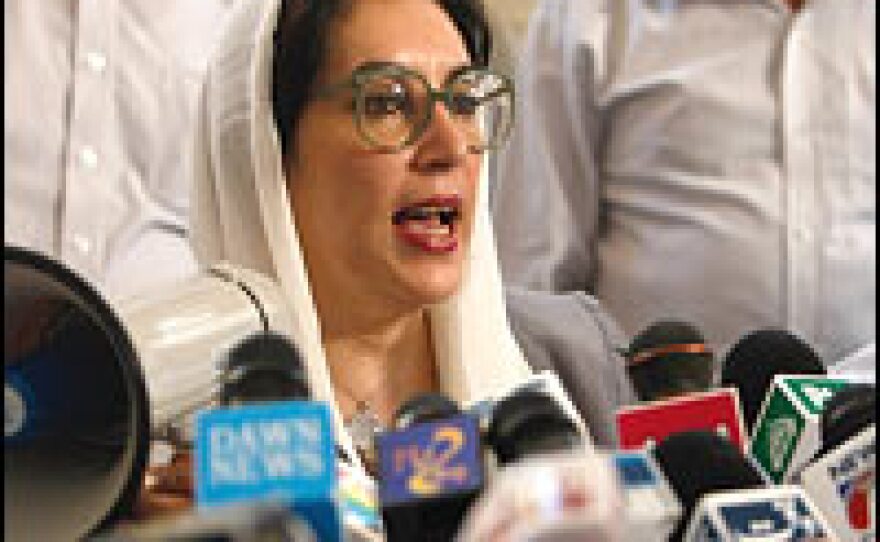
Pakistani police on Saturday questioned three people about the bombing of Benazir Bhutto's caravan, which killed at least 136 people during the former prime minister's homecoming celebration.
The men were linked to a vehicle that police believe was used by one of the attackers who threw a grenade at the convoy late Thursday, a senior investigator said on condition of anonymity.
A suicide bomber blew himself up with a shrapnel-filled explosive seconds after the first blast.
Police detained the three men in the southern Punjab province - a center for militancy - and took them to Karachi for questioning.
The senior investigator said police believed the men, who have yet to be charged, hold crucial clues on the bombing.
The attack was the deadliest in Pakistan's history, turning Bhutto's jubilant homecoming parade into a scene of carnage. More than 200 were injured.
Pakistan's government on Saturday denied involvement in the attack while sporadic violence flared in Karachi, a boisterous city of 15 million people.
Bhutto blamed al-Qaida and Taliban militants for the assassination attempt against her, but also hinted that government or military officials could have been involved.
"I think we should stop playing blame games. The government provided the best possible security to her," Deputy Information Minister Tariq Azim told The Associated Press on Saturday.
The list of people who could have targeted the pro-Western leader is long.
Bhutto blamed remnants of the regime of former military leader Gen. Zia ul-Haq allegedly complicit in her father's execution. Islamic extremists could also be bent on stopping a female political leader from modernizing Pakistan.
Pakistan's Prime Minister Shaukat Aziz said the attack was unlikely to delay elections slated for January, but that the government would be alert for future attacks.
"I don't see the electoral process being hindered ... but of course we will have to be wise. We'll perhaps have to change our tactics a little," he said Saturday.
Azim said officials were considering banning political rallies ahead of the vote to "counter threats to security."
Both Bhutto and Pakistani President Gen. Pervez Musharraf - engaged in power-sharing negotiations - have vowed to fight extremism and terrorism.
Two severed heads were found at the scene. One was believed to be the suicide bomber.
One appeared to be in his 20s with curly hair and hazel eyes. The other had short, straight hair. Police were conducting forensic tests but said there was only one bomber.
A second detective, speaking on condition of anonymity, said investigators were also scanning government databases in search of suspects and focusing on requests for duplicate identity cards, indicating opponents may have been posing as Bhutto supporters.
While Bhutto has accused some of Musharraf's political allies of militant links, the attack could push the two closer into an alliance against extremism - a cause both reiterated their support for after the bombing.
In violence possibly tied to the political turmoil, suspected pro-Taliban Islamic militants shot and killed two pro-government elders as they traveled through the northwestern tribal region of Bajur.
The men were part of a council of tribal elders that met last week with aides of militant leader Baitullah Mahsud, trying to forge a cease-fire between government forces and militants, said Fazal Rabi, a local government official.
Mahsud had reportedly threatened recently to target Bhutto with suicide attacks.
From NPR reports and The Associated Press
Copyright 2022 NPR. To see more, visit https://www.npr.org. 9(MDAzMjM2NDYzMDEyMzc1Njk5NjAxNzY3OQ001))






